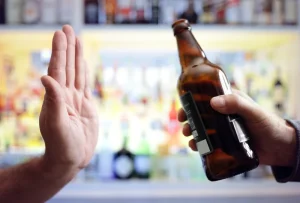Sober living
Alcohol and Kidney Problems: Kidney Pain and Treatment

The latter two symptoms occur due to toxin buildup in the bloodstream. Some of these toxins may cause fatigue, while others are anorexigenic (i.e., they suppress appetite). For example, a person with a UTI that spreads to the kidneys can develop sepsis, a dangerous infection of the blood. However, more research is needed into the link between alcohol use and kidney injury. Kidney pain usually appears in the back, on either side of the spine, just under the ribs. A person who experiences this type of pain, especially if it intensifies over hours or days, may have a serious illness and should speak to a doctor.
Need help getting addiction treatment?
In contrast, heavy drinking leads to the development of nonischemic dilated cardiomyopathy alcoholic kidney pain (Klatsky 2007) and significantly increases the risk of sudden cardiac death (Hookana et al. 2011). When we consume alcohol, our kidneys work harder to filter this harmful substance. Too much alcohol causes the kidneys to overwork, contributing to damage. Alcohol also negatively affects the regulation of fluid and electrolytes, thus leading to dehydration in the cells. Furthermore, alcohol can disrupt the balance of hormones that affect the kidneys. Chronic and severe kidney damage caused by long-term alcohol abuse may not be fully reversible.
- You also may not be able to drive for up to two weeks, which is why your transplant team will talk to you about having a care partner (caregiver) or someone to rely on for a week or two after surgery.
- Chronically elevated blood pressure is linked to kidney disease.
- These complications include cardiovascular conditions, such as heart disease and stroke.
Kidney Pain After Alcohol Consumption: Causes, Risks, and Treatment Options
They filter waste from your blood, regulate the balance of water and minerals in your body and produce hormones. Donating your kidney doesn’t change your life expectancy (how long you’ll live). In fact, some studies have shown that living donors live longer than the average person.
- Kidney abnormalities persisted in a small selection of participants.
- During your appointment, it’s also worth talking with your healthcare provider about whether or not it’s safe for you to consume alcohol in general.
- Ark Behavioral Health offers 100% confidential substance abuse assessment and treatment placement tailored to your individual needs.
About Bel Marra Health
Your kidneys play a very important role in keeping your body healthy and free from harmful substances. Aside from filtering and getting rid of the waste, alcoholism symptoms your kidneys also make sure that your body maintains a proper balance of fluid and electrolytes. So when you’re drinking, your kidneys work double-time to flush out the excess alcohol from your body, which can result in the pain that you’re feeling right now. That said, epidemiological data have yet to confirm a relationship between alcohol consumption and chronic kidney disease. A recent meta-analysis (Cheungpasitporn et al. 2015) found little support for such a relationship.

Symptoms of Kidney Pain
- Alcohol-induced skeletal muscle damage leads to excessive amounts of circulating myoglobin, causing renal tubular injury as a result of increased oxidative stress.
- If you experience any of these symptoms or suspect alcohol-related kidney damage, consult a healthcare professional for a thorough evaluation and guidance on appropriate management and treatment.
- Having kidney stones heightens your risk of developing hydronephrosis.
- Kidney stones are small hard deposits of minerals that form in the kidney.
- Try designating alcohol-free days, setting a budget on your alcohol spending, switching from harder liquors to a glass of wine, and increasing your water intake.
- The kidney is particularly sensitive to an increased IgA load.
Contact Simcoe to learn about our alcohol treatment programme and get the help you need today. The type of kidney damage that causes these painful symptoms varies. Others may have a UTI or, worse, be in the early https://ecosoberhouse.com/ stages of CKD. What’s more, leaving CKD untreated can cause serious health complications. These complications include cardiovascular conditions, such as heart disease and stroke.

